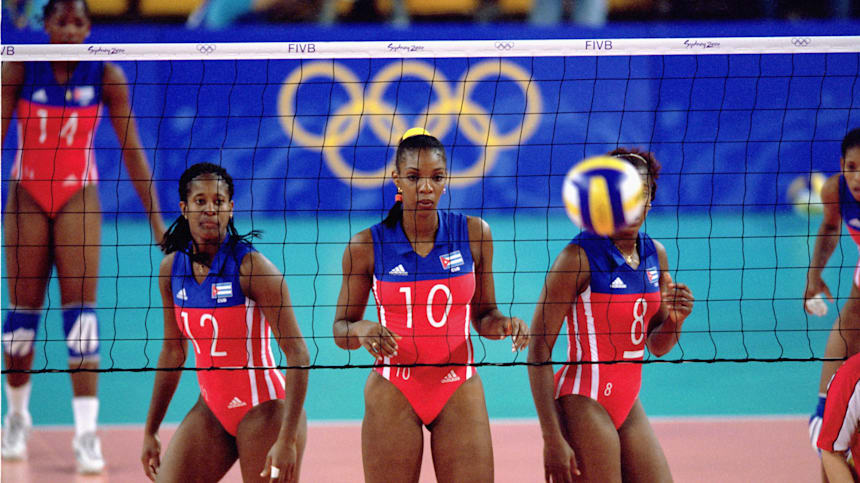Junior volleyball training programs are essential for young athletes looking to develop their skills and excel in the sport. These programs, such as those offered by JUST SPIKE IT VOLLEYBALL ACADEMY PTY LTD, not only focus on improving physical abilities but also on building a strong foundation of knowledge and technique. Let's explore the key components of junior volleyball training programs and how they can help young players reach their full potential.
The Importance of Junior Volleyball Training Programs
Participating in a junior volleyball training program offers numerous benefits for young athletes. These programs provide a structured environment where players can learn and improve their skills under the guidance of experienced coaches. Here are some reasons why junior volleyball training programs are crucial for young players:
1. Skill Development
- Junior volleyball training programs focus on developing fundamental skills such as passing, setting, serving, spiking, and blocking.
- Coaches work with players to improve their technique and help them become well-rounded athletes.
- Players have the opportunity to practice and refine their skills in a controlled and supportive setting.
2. Physical Conditioning
- Junior volleyball training programs incorporate strength, agility, and conditioning exercises to help players improve their physical fitness.
- Conditioning drills help players build endurance, speed, and power, which are essential for success on the volleyball court.
- By participating in regular training sessions, young athletes can enhance their overall physical health and performance.
3. Game Understanding
- Coaches in junior volleyball training programs teach players about the rules, strategies, and tactics of the game.
- Players learn how to read the game, anticipate plays, and make smart decisions on the court.
- Understanding the nuances of volleyball can give young athletes a competitive edge and help them succeed in matches.
Components of Junior Volleyball Training Programs
Junior volleyball training programs typically consist of a variety of components that work together to help players improve their skills and knowledge of the game. Here are some common elements found in these programs:
1. Skill Workshops
- Workshops focused on specific skills such as passing, serving, and blocking help players refine their technique and improve their proficiency in these areas.
- Coaches provide demonstrations, drills, and feedback to help players understand and master the fundamentals of each skill.
- Players have the opportunity to practice their skills in a structured and supportive environment, which accelerates their development.
2. Position-Specific Training
- Position-specific training sessions allow players to focus on the skills and responsibilities associated with their position on the court.
- Liberos, setters, outside hitters, and middle blockers can work on position-specific drills and scenarios to enhance their performance in matches.
- Coaches provide guidance and feedback tailored to each player's position, helping them excel in their role on the team.
3. Game Simulation
- Game simulation drills and scrimmages give players the opportunity to apply their skills and knowledge in a competitive setting.
- Players learn how to work together as a team, communicate effectively, and execute strategies in game-like situations.
- Game simulations help players develop a competitive mindset and prepare them for real matches where they can put their skills to the test.
How to Choose the Right Junior Volleyball Training Program
When selecting a junior volleyball training program for your child, it's important to consider several factors to ensure they receive the best possible training and development opportunities. Here are some tips for choosing the right program:
1. Coaching Staff
- Look for programs with experienced and knowledgeable coaches who have a track record of developing young talent.
- Coaches should be skilled at teaching fundamental skills, game strategies, and sportsmanship values to young athletes.
- Research the coaching staff's backgrounds, qualifications, and coaching philosophies to determine if they align with your child's needs and goals.
2. Training Facilities
- Ensure that the training program has access to quality facilities that are suitable for volleyball training and competition.
- Indoor courts, strength and conditioning equipment, and other training resources are essential for providing a comprehensive training experience for young athletes.
- Visit the training facilities in person to assess their cleanliness, safety, and overall suitability for your child's training needs.
3. Training Schedule
- Consider the training schedule and frequency of sessions offered by the program to ensure it fits with your child's availability and commitment level.
- Regular training sessions are essential for skill development and improvement, so make sure the program offers an adequate amount of training time each week.
- Find out if the program provides additional opportunities for extra training, workshops, or clinics to further enhance your child's development.
Conclusion
Junior volleyball training programs play a vital role in helping young athletes build a strong foundation of skills, knowledge, and experience in the sport. By participating in these programs, players can develop their physical abilities, enhance their game understanding, and prepare for competitive play. When choosing a junior volleyball training program, it's important to consider the coaching staff, training facilities, and training schedule to ensure your child receives the best possible training experience. With the right program and dedication, young players can reach their full potential and achieve success on the volleyball court.
